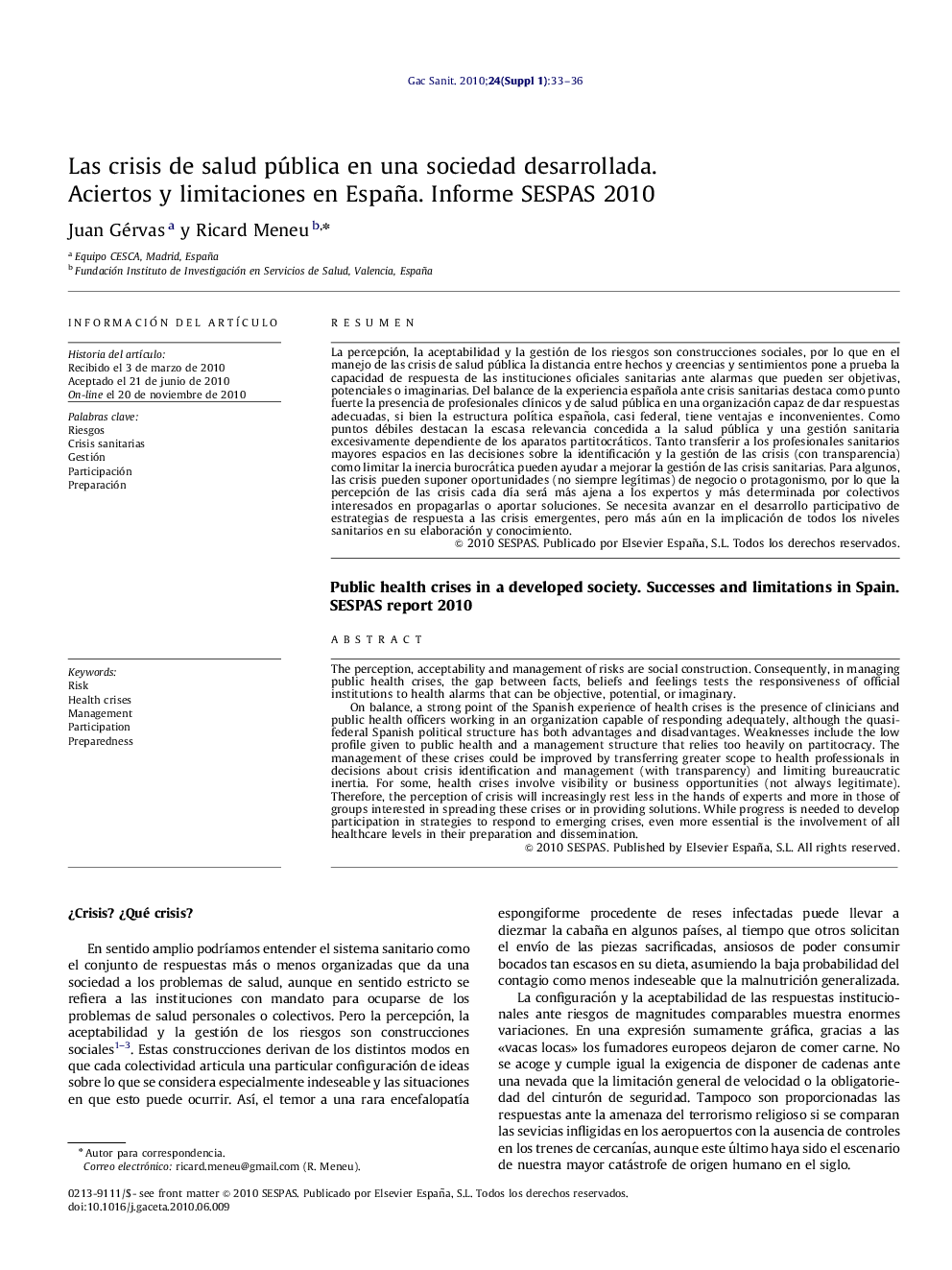| Article ID | Journal | Published Year | Pages | File Type |
|---|---|---|---|---|
| 1074386 | Gaceta Sanitaria | 2010 | 4 Pages |
Abstract
On balance, a strong point of the Spanish experience of health crises is the presence of clinicians and public health officers working in an organization capable of responding adequately, although the quasi-federal Spanish political structure has both advantages and disadvantages. Weaknesses include the low profile given to public health and a management structure that relies too heavily on partitocracy. The management of these crises could be improved by transferring greater scope to health professionals in decisions about crisis identification and management (with transparency) and limiting bureaucratic inertia. For some, health crises involve visibility or business opportunities (not always legitimate). Therefore, the perception of crisis will increasingly rest less in the hands of experts and more in those of groups interested in spreading these crises or in providing solutions. While progress is needed to develop participation in strategies to respond to emerging crises, even more essential is the involvement of all healthcare levels in their preparation and dissemination.
Related Topics
Health Sciences
Medicine and Dentistry
Public Health and Health Policy
Authors
Juan Gérvas, Ricard Meneu,
